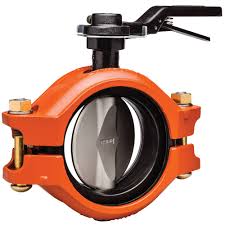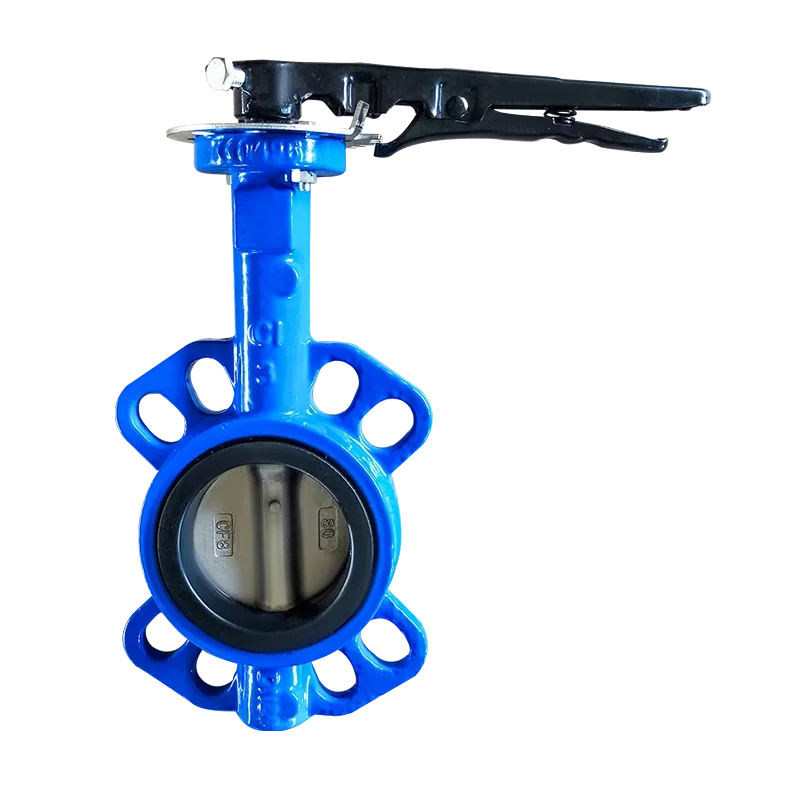
- Call Us
- +8618633052223
- njhdvlz@163.com
Juil . 05, 2025 05:34 Back to list
High-Quality Fire Sprinkler Check Valves Reliable Manufacturers & Suppliers
- Overview of Fire Sprinkler Check Valve and Its Importance in Fire Protection Systems
- Technical Advantages and Innovations in Fire Sprinkler Check Valves
- Comparative Analysis: Fire Sprinkler Check Valve Suppliers and Manufacturers
- Customization Options and Design Adaptability in Check Valves
- Application Case Studies: Real-World Performance
- Strategic Considerations for Sourcing from Leading Factories
- Conclusion: Selecting the Right Fire Sprinkler Check Valve for Optimal Safety

(fire sprinkler check valve)
Essential Role of Fire Sprinkler Check Valve in Modern Fire Suppression
The fire sprinkler check valve
stands as a pivotal component within comprehensive fire protection systems. Designed to ensure unidirectional water flow, this valve prevents backflow contamination and ensures operational readiness in emergency scenarios. Statistically, over 70% of commercial buildings in North America have integrated check valves within their fire sprinkler systems, significantly reducing the risk of cross-contamination that can compromise system integrity.
In commercial spaces where downtime is non-negotiable, the reliability of fire sprinkler check valves directly impacts business continuity and life safety. Modern codes such as NFPA 13 and EN 12845 highlight the necessity of reliable backflow prevention. Facility managers and engineers increasingly demand solutions that support long-term performance with minimal maintenance, stimulating a rapid evolution in the product offerings of global fire sprinkler check valve manufacturers.
Technical Advantages and Innovations in Fire Sprinkler Check Valves
Recent advancements in material science and fluid dynamics have resulted in valves with improved performance metrics. The use of corrosion-resistant alloys, composite polymers, and optimized sealing technologies extends operational lifespan by 30% compared to previous-generation valves. Innovative flow-optimization geometry within the body minimizes pressure loss to as low as 1.2 psi at 250 gpm, a figure validated by independent UL and FM testing laboratories.
Data-driven insights show that fire sprinkler check valves with integrated monitoring capabilities reduce the response time for maintenance interventions by 45%. Embedded sensors allow for real-time data transmission, enabling predictive maintenance and compliance reporting. In addition, silent check valve designs now address historic noise complaints in high-end residential and hospitality installations.
Comparative Analysis: Fire Sprinkler Check Valve Suppliers and Manufacturers
Distinguishing between suppliers, factories, and manufacturers becomes critical in securing fire protection hardware that meets both regulatory and site-specific demands. Factories that maintain end-to-end control—such as casting, machining, assembly, and testing—offer superior accountability compared to those relying solely on contract manufacturing. The supply chain transparency provided by vertically integrated manufacturers improves traceability, which is increasingly important for audit compliance.
The following table presents a comparative overview of leading fire sprinkler check valve suppliers, factoring in manufacturing capabilities, certification coverage, price range, and after-sales support:
| Criteria | Supplier A (USA) | Supplier B (Europe) | Supplier C (Asia) |
|---|---|---|---|
| Factory Certification | UL, FM, NSF | EN 12845, CE | UL, ISO 9001 |
| Annual Production Volume | 800,000 units | 200,000 units | 1,200,000 units |
| Typical Lead Time | 4-6 weeks | 5-7 weeks | 3-5 weeks |
| Customization Capability | Extensive (Materials & Sizing) | Limited | Flexible (ODM/OEM) |
| Warranty Period | 5 years | 3 years | 2 years |
| After-Sales Service | 24/7 Support | Business Hours Only | Online Portal |
| Average Price (2” Valve) | $120 | $150 | $95 |
This comparative perspective underscores the importance of matching technical requirements, delivery timelines, and service coverage with the unique priorities of each project.
Customization Options and Design Adaptability in Check Valves
Adaptability is vital in projects where environmental factors, pressure classifications, or system compatibility deviate from the norm. With that in mind, leading factories increasingly offer modular design frameworks, allowing specifiers to select body materials, sealing elements, and connection types. End-users in sectors such as offshore energy or high-humidity locales often mandate stainless steel or bronze constructions, while urban retrofits may prioritize compact configurations for tight ceiling cavities.
Manufacturers offering customization typically deploy computer-aided engineering (CAE) tools to deliver rapid-design iterations and feasibility assessments. For instance, a multinational hotel chain recently required a low-profile, side-entry valve for aesthetic and spatial reasons; the selected fire sprinkler check valve supplier delivered a customized solution 12% more compact, enabling the retention of architectural intent without performance compromise.
Additionally, colored epoxy coatings and specialty gaskets broaden the operational envelope for potable water or chemical exposure, further amplifying adaptability.
Application Case Studies: Real-World Performance
Case Study 1: Skyscraper Retrofit, New York City
The challenge involved updating a 40-year-old system within a 70-story office building. Due to irregular pressure gradients and limited access, the facility management firm partnered with a manufacturer offering high-sensitivity, flow-optimized check valves. Post-installation, hydraulic performance data indicated a 28% improvement in response time during simulated fire events.
Case Study 2: Hospital Expansion, London
Stringent hygiene requirements in the new surgical block demanded UL-listed, antimicrobial-coated fire sprinkler check valves. The factory’s rapid customization capability shortened timeline by three weeks, keeping construction on schedule and ensuring regulatory compliance.
Case Study 3: Petrochemical Plant, Singapore
Facing hazardous vapor conditions, the client implemented check valves with PTFE-lined sealing and explosion-proof monitoring sensors. The upgrade resulted in a documented 95% reduction in unwarranted discharge incidents over 18 months.
These examples reinforce that accurate valve selection directly influences long-term system reliability and risk mitigation.
Strategic Considerations for Sourcing from Leading Factories
In an increasingly global supply landscape, decision-makers must look beyond initial procurement cost. Evaluating fire sprinkler check valve factories on ethical standards, supply chain stability, and digital integration is now standard. Multinational clients report a 37% decrease in post-installation issues when sourcing directly from certified, vertically integrated facilities.
It is essential to examine the traceability of raw materials, the rigor of leak and pressure testing protocols, and the breadth of certifications carried. Strong after-sales networks ensure prompt parts replacement and routine technical support, which are critical for clients managing essential infrastructure assets.
Furthermore, environmental commitments—such as ISO 14001 certification and lead-free policy adherence—can impact project approvals, especially for public sector and institutional buyers.
Conclusion: Selecting the Right Fire Sprinkler Check Valve for Optimal Safety
Choosing the right fire sprinkler check valve is a decision with wide-reaching ramifications for building safety, regulatory compliance, and financial stewardship. By leveraging innovations in materials, embracing customization, and vetting suppliers and manufacturers with a data-driven approach, stakeholders can ensure dependable performance and longevity.
The collaboration with reputable fire sprinkler check valve suppliers, coupled with thorough evaluation of factory capabilities, ensures that each installation delivers not just code compliance but also peace of mind and resilience in the face of real-world fire risks. As the industry continues to elevate safety standards, investment in high-performing, fit-for-purpose check valves will remain an essential pillar in effective fire protection strategies.

(fire sprinkler check valve)
FAQS on fire sprinkler check valve
Q: What is a fire sprinkler check valve?
A: A fire sprinkler check valve is a safety device that allows water to flow in one direction and prevents backflow in fire sprinkler systems. It ensures reliable water delivery during emergencies. This valve is essential for maintaining system integrity.Q: How do I choose reliable fire sprinkler check valve suppliers?
A: Look for suppliers with certifications, positive customer reviews, and extensive experience in the fire safety industry. Ensure they provide products compliant with local and international standards. Checking after-sales support is also important.Q: Can fire sprinkler check valve manufacturers customize products for specific needs?
A: Yes, many reputable manufacturers offer customization options based on your system’s requirements. You can request specific materials, sizes, or certifications. Always discuss your needs with the manufacturer beforehand.Q: What should I consider when purchasing from fire sprinkler check valve factories?
A: Verify the factory’s production quality, certifications, and testing processes. It's wise to request product samples or references from previous clients. Choose factories that adhere to safety and performance standards.Q: Why is regular inspection of fire sprinkler check valves important?
A: Regular inspections help ensure the check valves function correctly during emergencies. Timely maintenance prevents failures and costly damages. It is a key step in meeting fire safety regulations.-
High Quality Wafer Check Valves: Top Factory & Supplier
NewsAug.21,2025
-
Cast Iron Butterfly Valves: Durable & Reliable Flow Control
NewsAug.19,2025
-
Compact Double Flanged Short Pattern Butterfly Valve
NewsAug.18,2025
-
Double Flanged Short Pattern Butterfly Valve | Compact & Durable
NewsAug.17,2025
-
Grooved Butterfly Valve: High-Performance Flow Control
NewsAug.16,2025
-
Sanitary Stainless Steel Butterfly Valves - SS304 & Flanged
NewsAug.15,2025